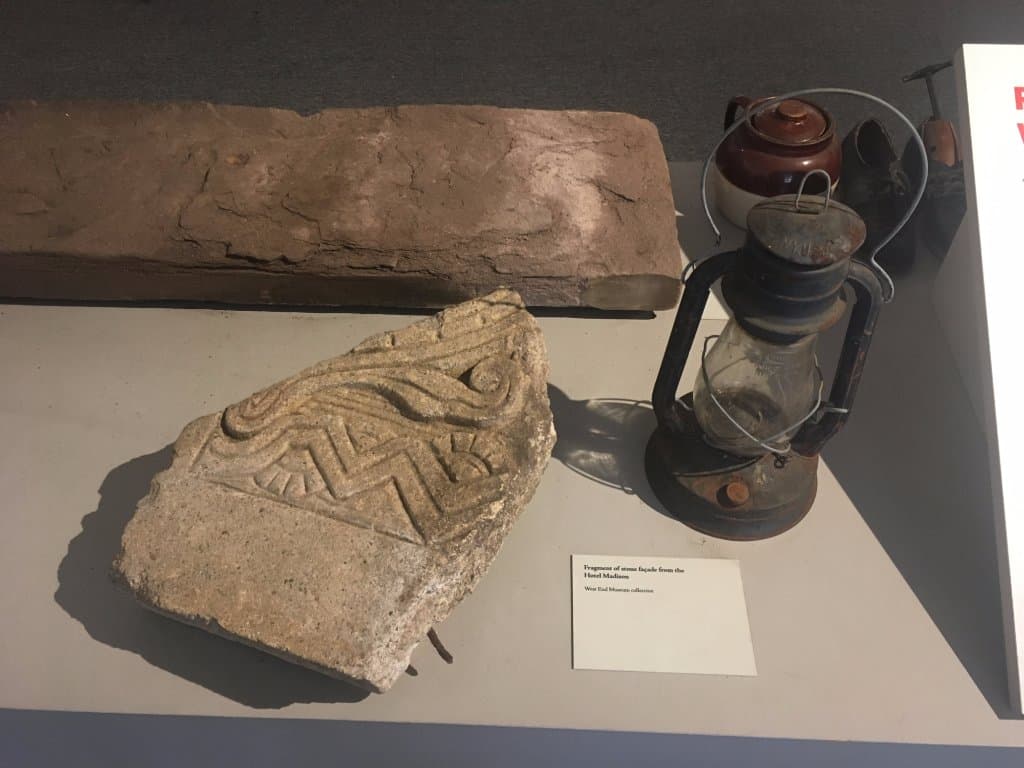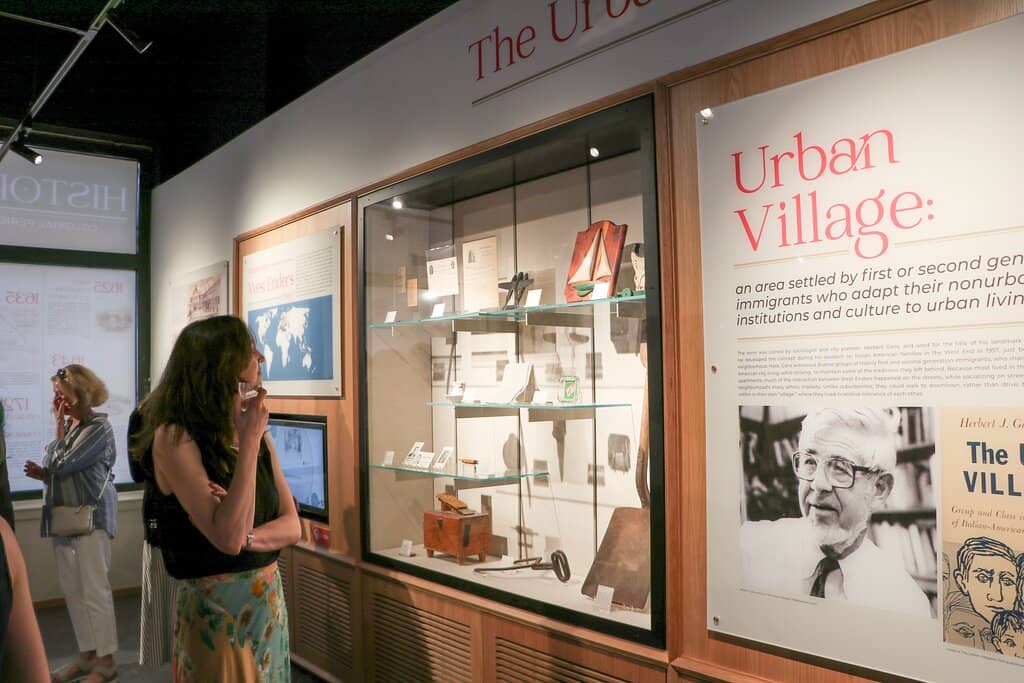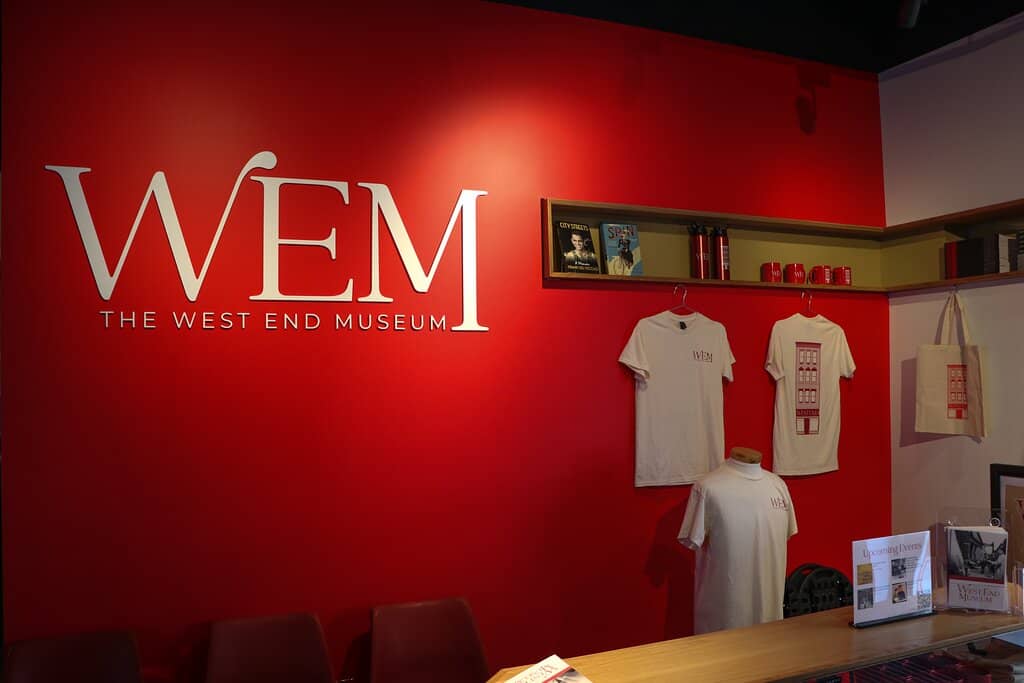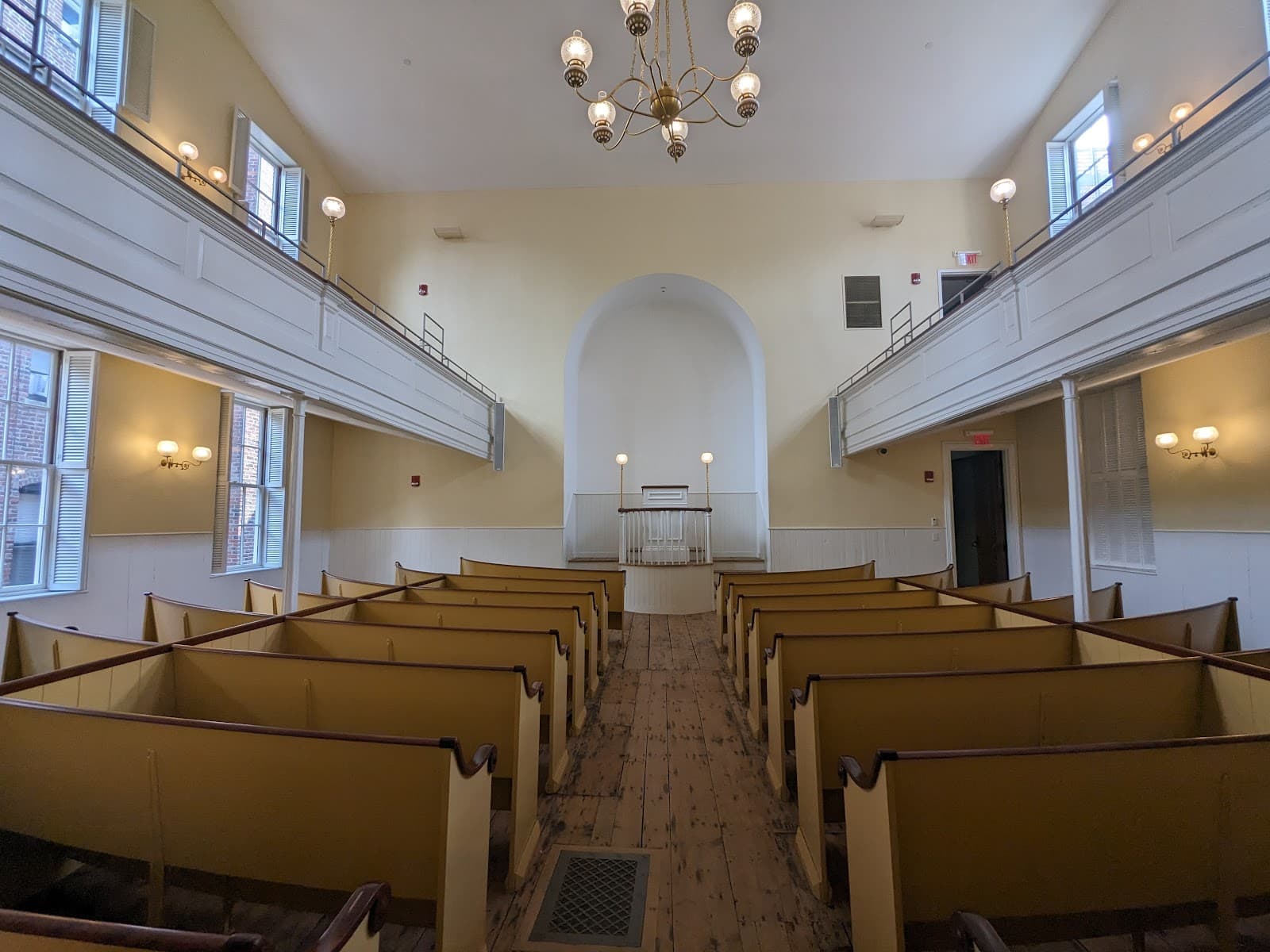
West End Museum Boston
A poignant museum preserving the memory of Boston's West End, a vibrant neighborhood demolished by urban renewal.

Highlights
Must-see attractions

Social
From TikTok & Reddit
Best Time
Fewer crowds, more personal attention

West End Museum Boston
Best Time
Fewer crowds, more personal attention

Highlights
Must-see attractions
A poignant museum preserving the memory of Boston's West End, a vibrant neighborhood demolished by urban renewal.
"A must-see for understanding the human cost of urban renewal and the loss of a vibrant community."

🚗 Parking is Tough
Street parking is scarce. Use public transit or rideshare to reach the museum easily.
🗣️ Engage with Docents
Docents are passionate and knowledgeable. Ask questions, but also advocate for your space if needed.

Highlights
Discover the most iconic attractions and experiences

Interactive Exhibits
Engaging displays, videos, and artifacts bring the history of the West End to life, showcasing its vibrant past and tragic demolition.

Personal Stories
Hear firsthand accounts from former residents, offering a powerful and emotional perspective on urban renewal's impact.

Historical Photos
A vast collection of photographs documents the diverse community and architecture of the West End before its destruction.
Plans like a pro.
Thinks like you
Planning Your Visit
Understand the History
Parking & Accessibility
Best Times
Insider Tips
from TikTok, Instagram & Reddit
🚗 Parking is Tough
Street parking is scarce. Use public transit or rideshare to reach the museum easily.
🗣️ Engage with Docents
Docents are passionate and knowledgeable. Ask questions, but also advocate for your space if needed.
🕰️ Allow Ample Time
While small, the exhibits are dense. Give yourself time to absorb the stories and information.
❤️ Prepare for Emotion
The museum's content is powerful and can be emotionally resonant for many visitors.
Tips
from all over the internet
🚗 Parking is Tough
Street parking is scarce. Use public transit or rideshare to reach the museum easily.
🗣️ Engage with Docents
Docents are passionate and knowledgeable. Ask questions, but also advocate for your space if needed.
🕰️ Allow Ample Time
While small, the exhibits are dense. Give yourself time to absorb the stories and information.
❤️ Prepare for Emotion
The museum's content is powerful and can be emotionally resonant for many visitors.
What Travellers Say
Reviews Summary
The West End Museum Boston is praised for its poignant and insightful documentation of a neighborhood's history and its tragic demolition due to urban renewal. Visitors find the interactive exhibits and personal stories deeply moving, offering a crucial perspective on the human cost of city planning. While the content is highly valued, some guests note that the docents can be overly attentive, potentially disrupting the visitor's personal exploration.
"The museum is small, and there is almost no parking nearby, but they pack a lot in with the interactive exhibits: you watch a short film and then circulate a room containing artifacts, videos, and interactive exhibits. The docent was friendly.
My one complaint is that I felt smothered. The introduction was extremely detailed: the person literally pointed to every section of the room to tell me what I would find there, and made sure I knew how to use the interactive exhibits.
Then, when I did start exploring on my own, my focus was interrupted by an ask to show me how to use an exhibit I had just started exploring and was deep in focus reading.
After that startle my heart rate was up and I was anxious and tense (tensed my ankle so bad I can’t stand on it anymore. I am fragile and startling is the worst for my body). My focus was so broken, I moved quickly through the rest, but was interrupted again by “you’re missing a lot! I can show you how to use that other exhibit,” and then he did.
My advice would be to leave people alone. Once you go into such detail at the beginning, don’t interrupt. Offer yourself for questions if people need, but don’t smother them.
I can’t focus when I know I am likely to have my focus interrupted, and that meant I couldn’t explore anymore.
Very friendly guy. Very insightful museum. I just needed the space to explore it."
Kristy Johnson
"This museum has brilliantly documented the rise and fall of the rich and vibrant West End neighborhood, which was destroyed by developpers in the 1950s. Urban renewal was rampant in many cities in North America, and Boston was not immune to that discriminatory and racist practice. Bravo to this small but impactful museum. A must-see!"
Isabelle A
"This is a fantastic museum for anyone interested in learning about the disastrous history of urban renewal. It is small but has great interactive exhibits and when I visited I got to talk to one of the volunteers who grew up in the neighborhood in the 1950s."
David Agonburg
What People Like
What People Dislike
Frequently Asked Questions
🚇 🗺️ Getting There
The West End Museum is conveniently located near North Station. You can easily reach it via the MBTA Commuter Rail, Amtrak, or the MBTA subway lines (Orange and Green lines). If driving, be aware that parking in the area is very limited and can be expensive. Consider using rideshare services or public transportation for a smoother arrival.
Parking near the West End Museum is notoriously difficult. While there might be some metered street parking or garages in the vicinity, it's often scarce and costly. Many visitors opt for public transport or rideshares to avoid parking hassles.
The most recommended way to travel to the West End Museum is by public transportation, especially if you're coming from other parts of Boston or the surrounding areas. North Station is a major hub and is just a short walk away.
🎫 🎫 Tickets & Entry
Admission to the West End Museum is free, making it an accessible and valuable cultural experience for everyone.
The museum's hours can vary, and it has experienced closures in the past due to flooding. It's highly recommended to check their official website or social media for the most up-to-date operating hours before your visit.
As admission is free, advance booking is typically not required. However, it's always a good idea to check the museum's website for any special events or if reservations are recommended during peak times.
While the museum's content is historically significant and can be emotionally impactful, it may be more suited for older children and teenagers who can grasp the complex themes of urban renewal and displacement.
🎫 🧭 Onsite Experience
The West End Museum features interactive exhibits, historical photographs, videos, and artifacts that document the vibrant history of Boston's West End neighborhood and its subsequent demolition due to urban renewal projects.
The museum is relatively small, but the exhibits are dense with information and personal stories. Most visitors spend about 1 to 1.5 hours to fully absorb the content.
The museum often has knowledgeable docents who can provide introductions and answer questions. Some visitors have noted that docents can be very attentive, so be prepared for interaction.
Information on accessibility can vary. It's best to contact the museum directly or check their website for details regarding physical accessibility for visitors with mobility challenges.
The museum is crucial for preserving the memory of Boston's West End, a diverse neighborhood that was controversially demolished in the 1950s and 60s for urban renewal. It highlights the human impact of such projects.
📸 📸 Photography
Photography policies can vary. It's advisable to check for signage upon arrival or ask a museum staff member if photography is permitted, especially for personal use.
The historical photographs within the museum are powerful visual records. While personal photography might be restricted, the exhibits themselves offer a rich visual narrative of the past.
For Different Travelers
Tailored advice for your travel style
👨👩👧 Families with Kids
Consider preparing your children beforehand by explaining the concept of urban renewal and its impact on communities. This can help them process the emotional weight of the exhibits. The museum's free admission makes it an accessible option for families looking for educational outings, but it's best suited for families who can engage in thoughtful discussions about the sensitive topics presented.
🤔 History Buffs & Urban Planning Enthusiasts
You'll find a wealth of primary source material, including photographs and oral histories, that offer a unique perspective on how these large-scale changes impacted everyday lives. The museum's dedication to preserving the memory of the West End makes it an invaluable resource for understanding the social and cultural consequences of development.
🚶 Solo Travelers
Be prepared for the possibility of attentive staff. If you prefer to immerse yourself in the exhibits without interruption, it's advisable to communicate this preference gently. The museum offers a quiet space for reflection on a significant chapter of Boston's history.
Deep Dives
In-depth insights and expert knowledge
The Story of Urban Renewal in Boston's West End
Visitors often describe the experience as deeply moving and eye-opening. The museum doesn't just present facts; it conveys the profound human cost of these large-scale urban projects. Stories of families losing their homes, communities being torn apart, and the emotional trauma of displacement are central to the narrative. This focus on personal experience is what makes the West End Museum so impactful, offering a stark contrast to the often sterile narratives of urban development.
The museum's mission is to educate the public about the history of the West End and to serve as a cautionary tale about the potential negative consequences of urban planning when community voices are not prioritized. It highlights how such projects disproportionately affected marginalized populations and underscores the importance of preserving historical neighborhoods and the social fabric they represent.
Visitor Experiences and Museum Interaction
For some, this level of engagement can be a positive, offering deep insights and personal connections, especially when docents are former residents who can share firsthand memories. However, for others, particularly those who prefer to explore at their own pace or are sensitive to sudden interactions, it can lead to anxiety and a broken sense of focus. The advice from these visitors is to communicate your preferences clearly to the museum staff if you desire more space to absorb the exhibits.
Despite these interactions, the overall sentiment is that the museum is a valuable and insightful place. The passion of the staff and the importance of the stories they share are consistently recognized. It's a place that prompts reflection on history, community, and the impact of development on people's lives.






Social
from TikTok, Instagram & Reddit